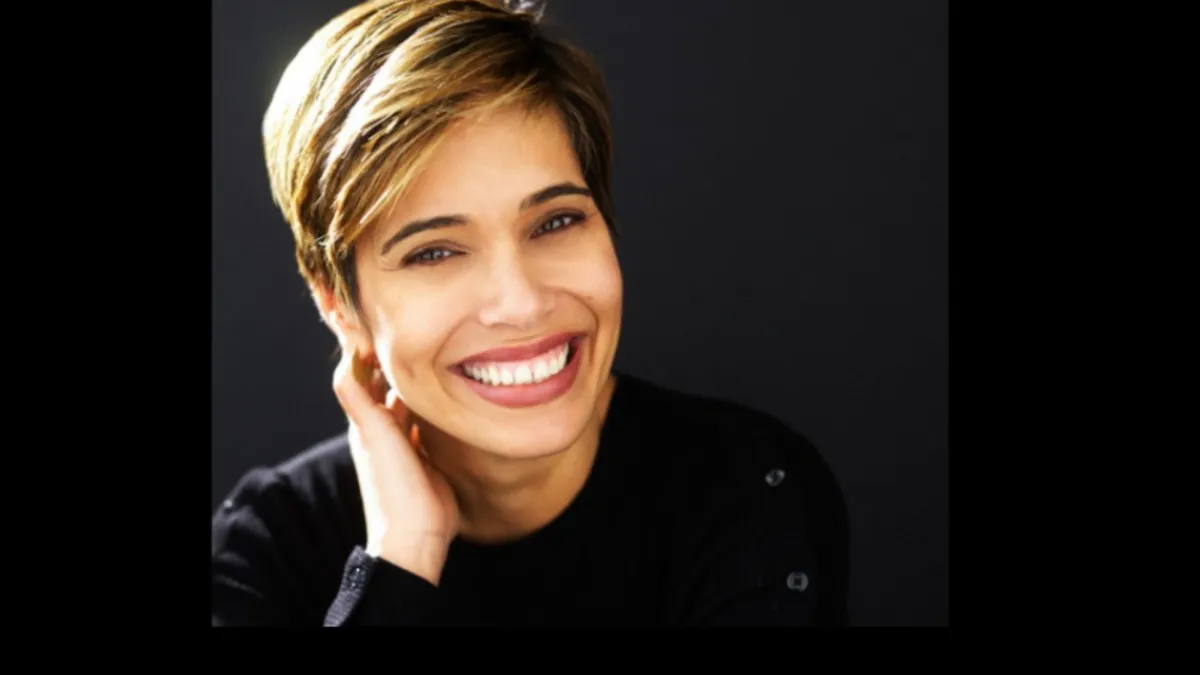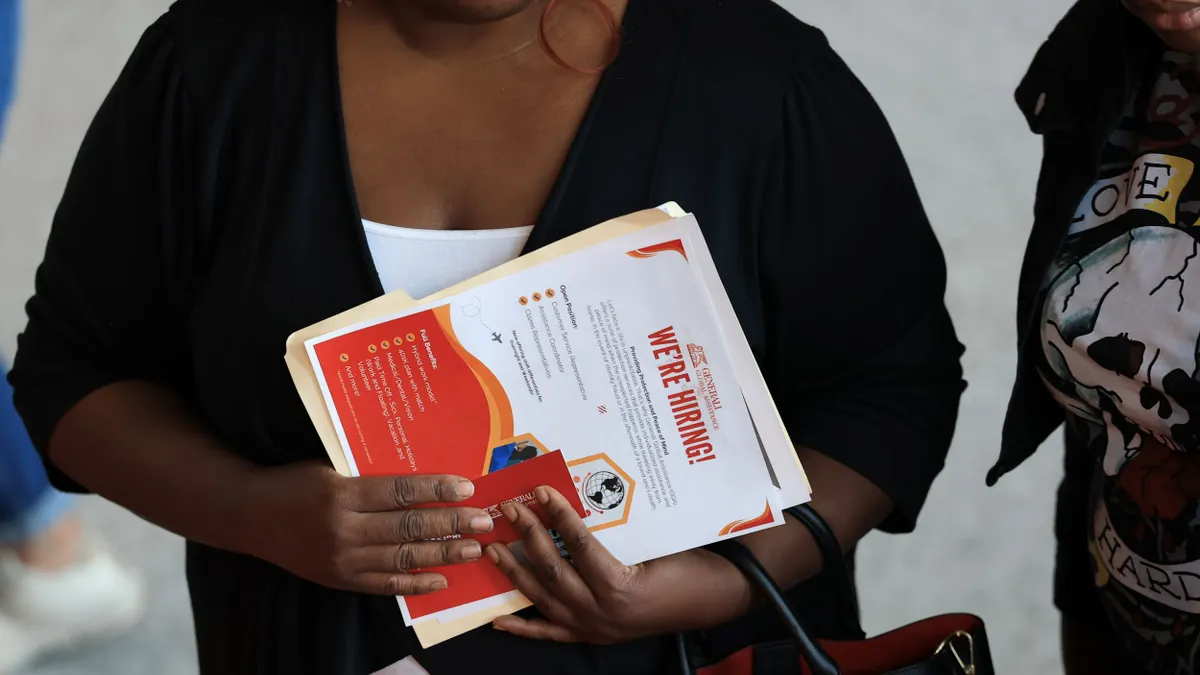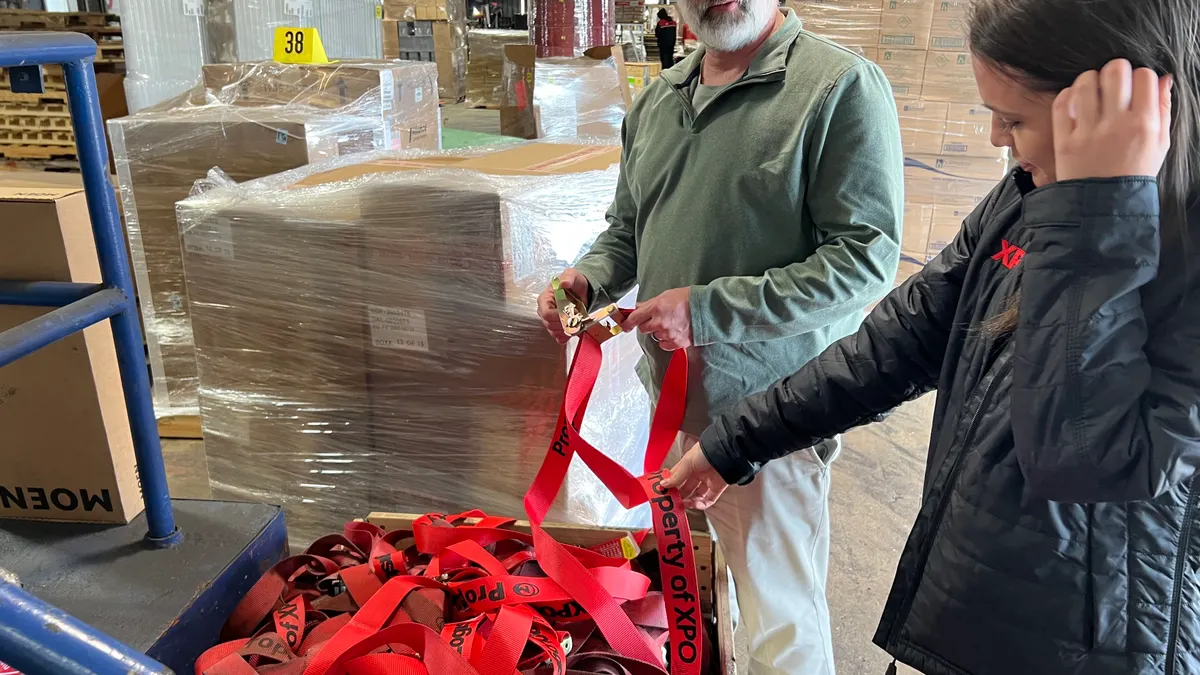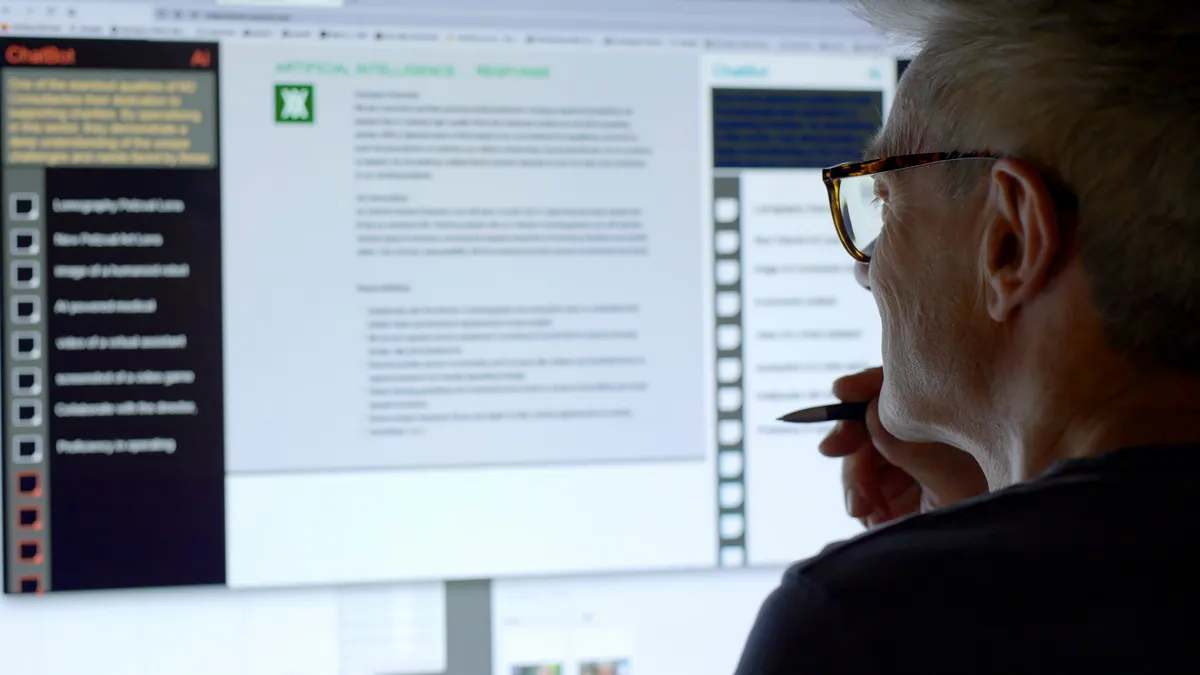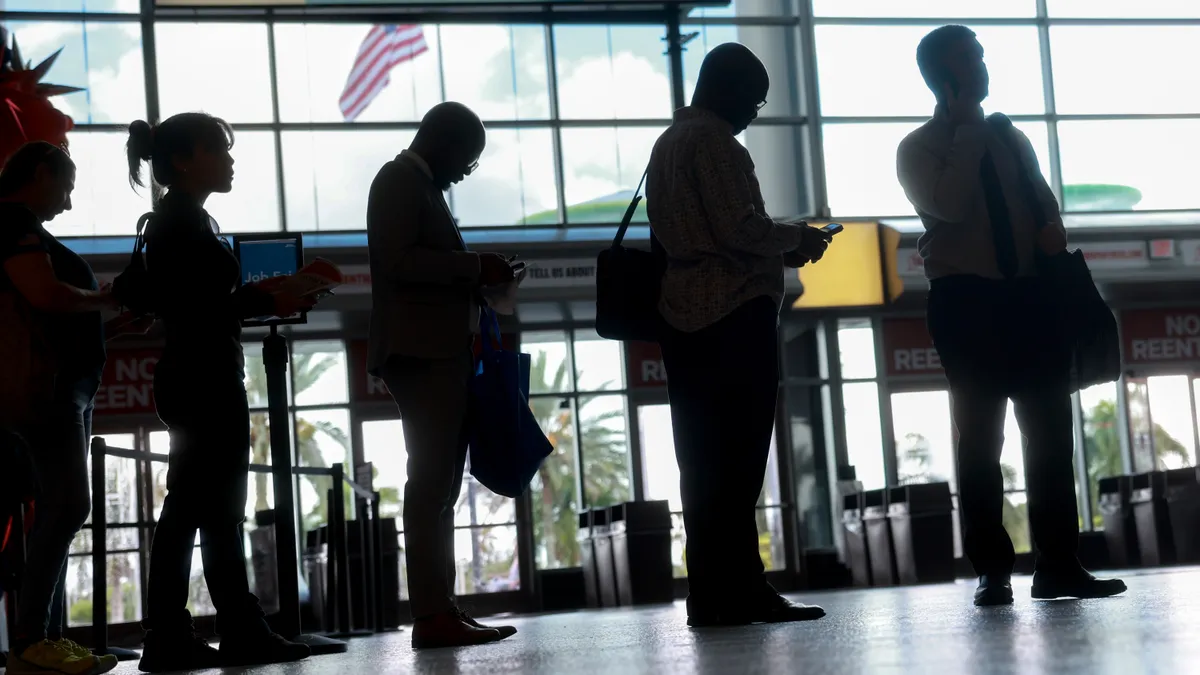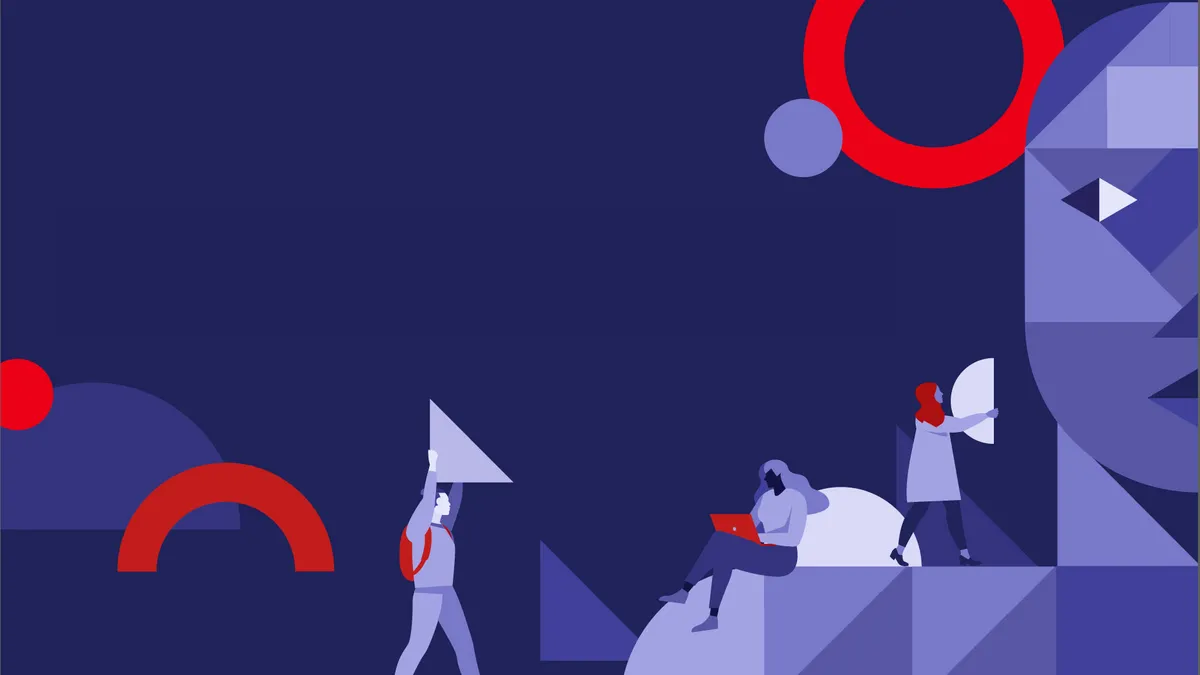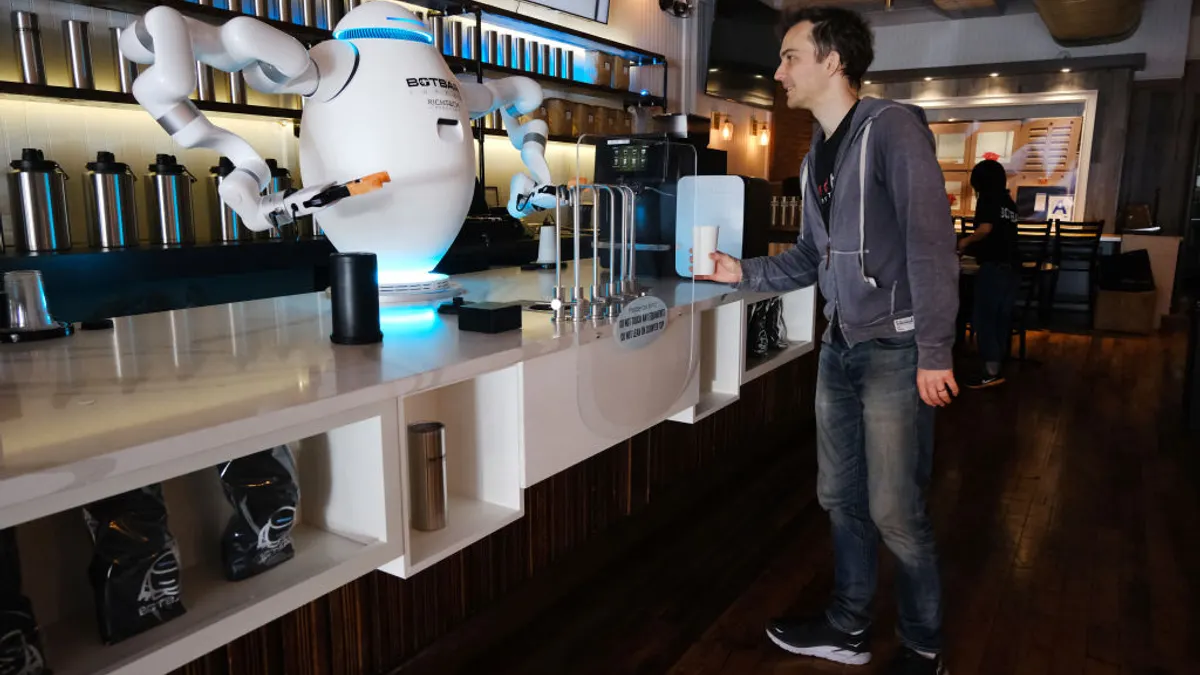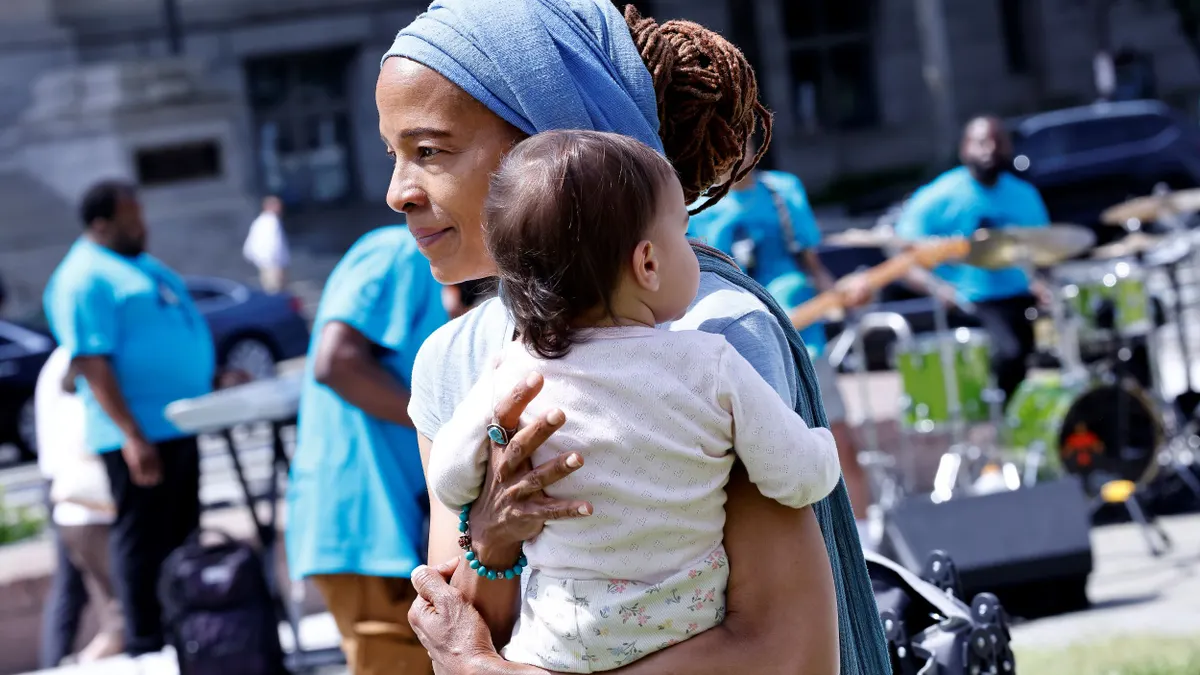When Daisy Auger-Domínguez's 12-year-old daughter asked her what she does for a living, she responded, "I help people make better decisions," Auger-Domínguez told HR Dive. "That's what I work on everyday."
Analyzing how workplace culture impacts employees and an organization while helping to position a workforce for transformational growth is Auger-Domínguez's forte. "I'm not your traditional HR leader," she said. And those skills came in handy when starting her new role as chief people officer at Vice Media Group in May amid the COVID-19 pandemic.
Auger-Domínguez brings to her position more than 20 years of experience in leading large-scale, global teams in HR transformation, organizational effectiveness, talent acquisition and development at companies including Moody's Investors Service, The Walt Disney Company, Viacom and Google. She was most recently an independent consultant advising senior leaders and board members at Fortune 500 companies, social impact organizations and startups.
At Vice Media Group, a digital media and broadcasting company based in Brooklyn, Auger-Domínguez reports directly to CEO Nancy Dubuc and is a member of the executive leadership team.
A diverse upbringing
Auger-Domínguez said her expertise in building a workplace culture based on diversity, equity and inclusion has its roots in the Dominican Republic.
The daughter of a Dominican father and Puerto Rican mother, Auger-Domínguez was born in New York City. "My parents were teenagers, and they were ill equipped to raise a child; they were 15 and 16," she said. "When I was about two years old, my paternal grandparents offered to raise me in the Dominican Republic." She lived in Santo Domingo, the country's capital. "I grew up with an amazing family, and had a very broad sense of what extended family meant."
She attended an international school in Santo Domingo with students from around the world. It's where she met her Danish best friend. The "rich tapestry of diversity" experienced at school and the multigenerational support of her family provided the future leader with a solid foundation, Auger-Domínguez said. At age 16, her father wanted her to return to the U.S. to prepare for college, she said, so Auger-Domínguez and her grandparents joined the family in New Milford, New Jersey.
Growing up in a middle-class household in the Dominican Republic, Auger-Domínguez had a strong sense of her identity, she said. But when moving back to the U.S., as a Latina, Auger-Domínguez felt as if she were placed in a "monolithic" box, solely defined by the stereotypes of "low socioeconomic status and low educational achievement" often reflected on TV news, she said. "So, I immediately rejected that but struggled for a couple of years in finding my footing in terms of who I was, particularly within an American context," Auger-Domínguez said.
She applied to and was accepted to colleges "I felt that I deserved to get into," Auger-Domínguez said. But she would often hear remarks from some of her White high school classmates suggesting her acceptances were based on affirmative action, she said. At the time, Auger-Domínguez didn't know the meaning of "affirmative action" but knew her grades and test scores were higher than the students making the comments, she said. Being smarter and working harder got her into college, Auger-Domínguez said. "Those microaggressions, as we call them now, those cultural slights started becoming a part of my everyday existence," she said. "I didn't really understand. My family wasn't quite equipped to help me navigate that."
It was at Bucknell University in Pennsylvania that Auger-Domínguez began to understand the American context of identity from a racial, ethnic, class and gender perspective, she said. One day on campus, a Black student who was also a football player said to her, "‘Hey sis, come and hang out with us … all the people of color are hanging out over here,'' she said. Auger-Domínguez always had a diverse group of friends, but that was the first time the term "people of color" was put into context for her, she said. He introduced Auger-Domínguez "to the place where I found home" on campus, "where I found my dear friends, where I found comfort," she said. "It was where I was seen, and wasn't questioned."
Auger-Domínguez graduated with a bachelor of arts in international relations and women and gender studies and went on to earn a master's in public administration at New York University. She started her career at Moody's; her father, a doorman at the Grand Hyatt New York, had a connection at the company who helped her to get an interview at the company, she said. Auger-Domínguez spent 12 years there, first working as a credit risk analyst. She then served as an analyst for Latin America and the Caribbean, later managing a global foundation within the company for three years, she said. "I really thought I found my lane in philanthropy," Auger-Domínguez said.
That all changed when she was asked to join HR as the company's first head of diversity and inclusion. This was her first corporate lesson in sponsorship, Auger-Domínguez said. "Our CFO, a woman, was the one who put my name in the hat," she said. "In her way, she was teaching me the corporate maneuverings of advancement." Auger-Domínguez was reluctant to begin a career in HR, a huge change from her financial background, she said. But she was also the team member who liked attending "Black MBA conferences, Asian MBA conferences and Hispanic MBA conferences out of a desire to connect the human experience with what I thought could happen at Moody's," she said. Auger-Domínguez's sponsor recognized her actions and saw in her the ability to become an HR leader with the skill sets to manage global workforces, she said. Auger-Domínguez accepted the challenge. But little did she know that years of HR experience would prepare her to lead during a pandemic.
An eventful first month
At Vice Media Group, Auger-Domínguez leads a team of more than 60 HR professionals in over 20 countries, she said. Her team's areas of responsibility include managing the entire employee lifecycle from recruitment and onboarding to compensation and benefits. There's also learning and development, "delivering on business strategies through strategic talent decisions" and overall culture — "my team does all that," Auger-Domínguez said.
But she hasn't yet met her team or CEO Nancy Dubuc in person, only virtually.
"I began interviewing in late March, a couple of weeks after we all went into quarantine," Auger-Domínguez explained. The onboarding process took place remotely. "When I was interviewing for this role, Nancy was very clear and directional in terms of wanting to bring in a leader that was going to focus on culture and give continuity to the work that she had started about two plus years ago when she joined Vice Media Group," Auger-Domínguez said. The organization has been undergoing a "transformation to create a healthier work environment to build a workplace where people feel proud," and is also "driven by progressive notions of what an organization can be," she said.
Auger-Domínguez knew early on her priorities coming into the role May 11, "in addition to just understanding the organization and the logic that it was built on," she said. Vice Media Group had undertaken a massive restructuring "that resulted in a series of redundancies," during her first week on the job, Auger-Domínguez said. "In a moment where we are all experiencing an economic and health crisis, it was a particularly challenging time to join," she said of the ensuing layoffs.
The following week, Auger-Domínguez had conversations with "unions, employees, particularly employees of color, who have felt the deep impact of these cuts," she said. "And while not statistically significant, and while every effort had been made to not negatively impact people of color, and other marginalized communities, the fact of the matter is, when the end count is low, any loss feels significant to you," she added. "I was able to have those conversations because as a woman of color, and as an executive in HR, I had experienced that already," she said. In her talks, she recognized the loss that employees felt, but focused on the "tremendous opportunity going forward."
"And then the following week, George Floyd was murdered," Auger-Domínguez said. As the HR leader for a media organization, she wanted to ensure the well-being of journalists as they covered national protests for racial justice recognizing the "impact that reporting on George Floyd had on our reporters of color," but also the "impact that it had on all of our reporters in a country where journalism is being rapidly devalued and is under attack."
Amid the pandemic, Dubuc sends company-wide notes on Fridays detailing important information and also shares what's going on in her personal life, Auger-Domínguez said. "It's become this beautiful ritual that ties us all together, despite the terrible things that are happening in this world," she said.
On her third Friday at Vice Media Group, Auger-Domínguez sent a note along with Dubuc's weekly communication. She recalled writing in her note that "this is not the way that I intended to introduce myself to all of you," Auger-Domínguez said. "‘But in the wake of George Floyd's murder, I would be remiss if I didn't share with you, as an Afro-Latina, as a woman who has been a leader doing the work of diversity, equity and inclusion, helpful resources and what we're going to do as a community.'"
Instead of trimming the note or making changes, the communications team "actually encouraged me to write more, to do more, which, I think is so indicative of this culture," Auger-Domínguez said. "It reminded me how important it is to feel like you belong somewhere. How important it is to feel that you're seen, and that you're really, truly welcomed."
But Vice Media Group wasn't exempt from "the racial reckoning that started happening, not just in society, but in corporate America," Auger-Domínguez said. There were allegations of a past toxic work environment, particularly for Black women, at Refinery 29, one of the company's publications. "It led us to really hold up a mirror, recognize and understand things that had not been brought up to our attention before," Auger-Domínguez said. While they occurred before Vice Media Group acquired the publication, they were legacy issues that continued to affect "how employees felt and how employees could perform in the workplace," she said.
Although her first month in her new role was a bit tumultuous, being raised in a developing nation taught her how to remain calm in times of crisis, Auger-Domínguez said. "I've been living in these moments my entire life," she said. "This is what I'm built for, right?" she joked. Her pantry is stocked because she grew up in a country where hurricanes are commonplace, she said. "So my husband's always laughing," commenting that she's always prepared for the next disaster to hit, Auger-Domínguez said. Her response to her husband: "Yeah, but if it does, we're protected; we're taken care of."
In times of crisis, as in the national calls for racial justice, the job of HR and company leaders is not to go out and make pledges, she said. "Our jobs are to look inward … and sit in the discomfort that comes from trying to understand your role," she said. The "role right now is to recognize that there have been people living in this discomfort their entire lives, and you are now just being privy to a slice of that;" she said; this is the time for leaders "to really listen to your employees."



